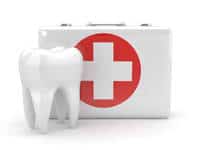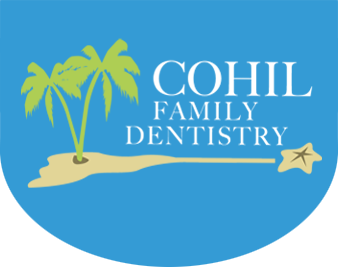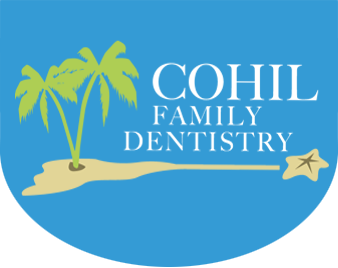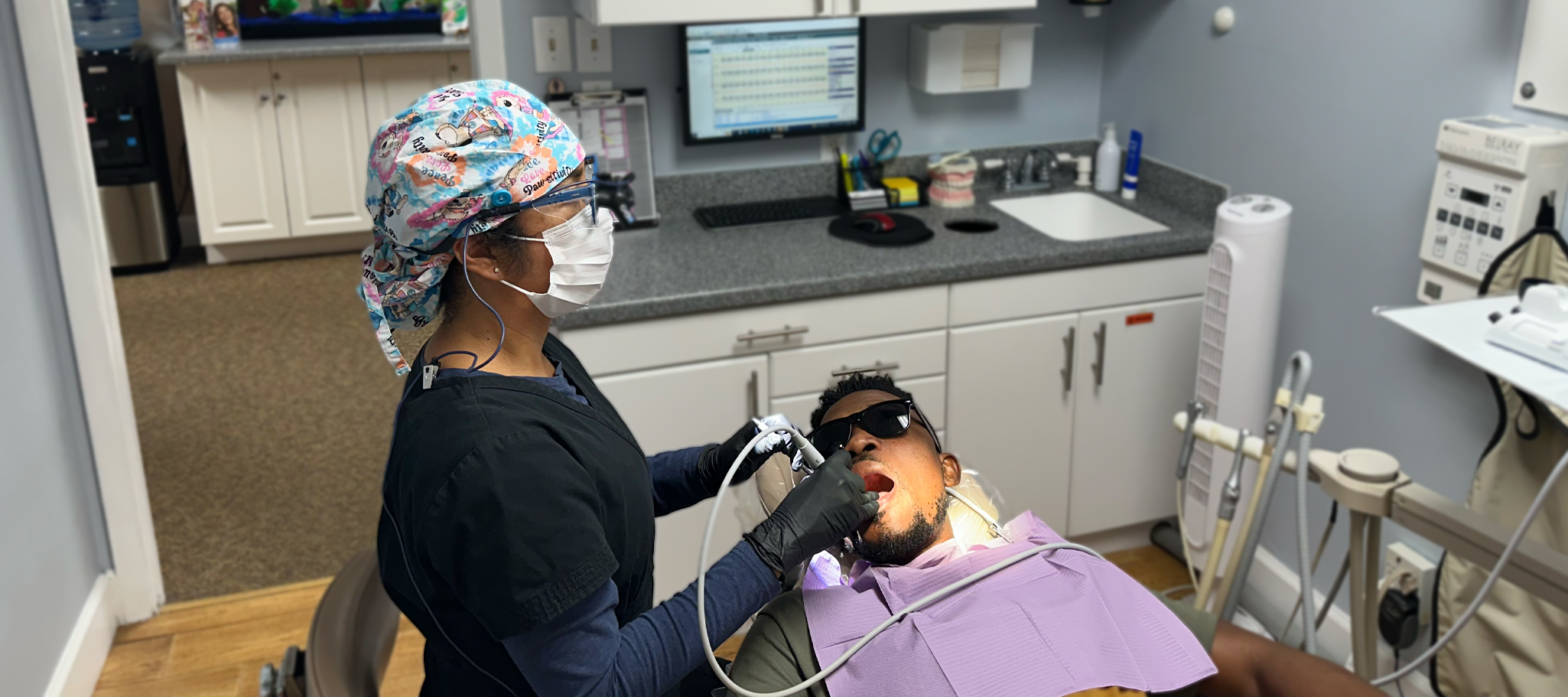Following a Tooth Extraction
 After a tooth extraction, it is important for a blood clot to form to stop the bleeding and begin the healing process. That is why we ask you to bite on a gauze pad for 30-40 minutes after the appointment. If the bleeding or oozing continues to persist, place another moist gauze pad and bite firmly for another 30 minutes. You may have to do this several times.
After a tooth extraction, it is important for a blood clot to form to stop the bleeding and begin the healing process. That is why we ask you to bite on a gauze pad for 30-40 minutes after the appointment. If the bleeding or oozing continues to persist, place another moist gauze pad and bite firmly for another 30 minutes. You may have to do this several times.
After the blood clot forms, it is important not to disturb or dislodge the clot as it aids in healing. Do not use any mouth rinses, suck through a straw, smoke, drink alcohol or brush teeth next to the extraction site for 48 hours. These activities will dislodge or dissolve the clot and retard the healing process. Limit vigorous exercise for the next 24 hours as this will increase blood pressure and cause more bleeding from the extraction site.
After the tooth is extracted, you may feel some pain and experience some swelling. An ice pack should be applied for the first 24 hours. It should be applied on and off every twenty minutes to keep swelling to a minimum. After 24 hours a heating pad should be applied. Take pain medications as prescribed. The pain typically subsides after 48-72 hours.
If antibiotics are prescribed, continue to take them for the indicated length of time, even if signs and symptoms of infection are gone. Drink lots of fluids and eat nutritious soft food on the day of the extraction. You can eat normally as soon as you are comfortable. Call the office immediately if you have any questions or concerns.
It is important to resume your normal dental routine after 24 hours, yet try to avoid the extraction site for 72 hours. This should include brushing and flossing your teeth at least twice a day. This will aid in the healing process by keeping your mouth fresh and clean.
If you have persistent bleeding, severe pain, or continual swelling exceeding three days, or a reaction to the medication, call our office immediately.
Following a Crown and/or Bridge Appointment
Crowns and bridges usually take two, sometimes three, appointments to complete. At the first visit, the teeth are prepared and molds of the teeth are taken. Temporary crowns or bridges are placed to protect the teeth while the custom restoration is being made. Since the teeth and face will be anesthetized, the tongue, lips, and roof of the mouth may be numb. Please refrain from eating and drinking hot beverages until the numbness has worn off.
Occasionally, a temporary crown may come off. You need to contact the office when this happens to have the temporary recemented. It is very important for the temporary to stay in place, as it will prevent other teeth from moving, protects the tooth and keeps the supporting gums in place. Loss of a temporary may compromise the fit of your final restoration.
To keep your temporary in place, avoid eating sticky foods, hard (crunchy) foods, and if possible chew on the opposite side of your mouth. It is important to brush normally, but floss carefully and don’t pull up on the floss which may dislodge the temporary. Pull the floss out from the side of the temporary crown/ bridge.
It is normal to experience some temperature and pressure sensitivity after each appointment. The sensitivity should subside after a few days, possibly a few weeks, after the placement of the final restoration. Mild pain medications may also be used as directed by our office.
If your bite feels high or uneven, if you have persistent pain, or if you have any questions or concerns please call our office at your earliest convenience. You may require no more than a minor bite adjustment to alleviate the discomfort you may be having.
Following Full Mouth/ Cosmetic Reconstruction
Once your restorative, reconstruction case is complete it may take time to adjust to your new bite. When the bite is altered or the position of the teeth is changed, it will take several days to adapt. If you continue to detect any high spots or problems with your bite, every effort will be made to see you immediately. Please call the office to schedule an appointment to have the bite re-evaluated. (Especially if you were numb during the delivery of the restorative work, which may inhibit precise accuracy.)
It is normal to experience some hot and cold sensitivity. The teeth require some time to heal after the removal of tooth structure and will be sensitive for the interim. Your gums may also be sore for a few days. Warm salt water rinses (a teaspoon of salt mixed in a cup of warm water) three times a day will reduce pain and swelling. Mild pain medication (two tablets of Tylenol or 400mg of Ibuprofen every 6 hours) should ease any residual discomfort.
Daily brushing and flossing are a must for your new dental work. Daily plaque removal is critical for long-term success of your new teeth, as are regular cleaning appointments with the hygienist.
Avoid chewing any hard foods and substances (such as ice, peanut brittle, seeds) and sticky foods/ candies that could pull crowns off. Any food that can crack, chip, or damage a natural tooth can do the same to your new teeth.
If a night guard was prescribed to you by the dentist, it is imperative that you wear it every night to protect your new teeth from the heavy forces of grinding and bruxism. If this is not worn properly, you risk the chance of fracture and chipping of the porcelain. This, in turn, can create instability in your bite. If you engage in sports, let us know so a custom mouthguard may be fabricated to protect the teeth from fracture to trauma. If you have any questions or concerns, feel free to contact the office.
Following Composite (White) Fillings
Typically after this procedure, you will be numb for several hours, from the use of anesthesia. Avoid chewing and any hot beverages until the numbness has completely worn off. It is very easy to bite or burn your lip or tongue while you are numb.
You may chew with your composite fillings as soon as the anesthetic completely wears off, since they are completely set up when you leave the office.
It is normal to experience some cold, hot and pressure sensitivity after your appointment. Injection sites may also be sore. Ibuprofen or Tylenol every 6 hours as needed for pain work well to alleviate the tenderness.
The composite fillings do not flex like the natural tooth. So if the restoration is contacting first when chewing, sensitivity will arise. This usually requires the dentist to further adjust the bite of the filling. When the patient is numb, he / she do not always bite accurately, preventing the dentist from adjusting it completely. Sensitivity may also arise due to the depth of the filling from a deep cavity.
If your bite feels uneven, if you have persistent discomfort, or you have any questions or concerns please call our office at your earliest convenience.
Following a Root Canal
Root Canals typically take one to two appointments to complete. During the course of treatment a patient may feel sensitivity to hot, cold and pressure. Injection sites may also be sore. Typically Ibuprofen (Advil, Motrin) can be used accordingly to the manufactures instructions to alleviate any discomfort a patient encounters. In some cases it is necessary to prescribe antibiotics and/or additional types of pain medication depending on that individual’s unique condition.
Once a root canal is completed, the patient may experience achiness or soreness for a few days after the procedure, from working inside the tooth. Ultimately, this mild discomfort will dissipate, resulting in a patient that is pain-free and comfortable.
If discomfort persists beyond a week’s time, please contact the office to have it further evaluated.
Following the Placement of a Denture/Partial Denture
After the delivery of a denture, sore spots or ulcerations may arise from rubbing of the denture. The denture may be too long in length or too tight in certain regions. The longer the denture is left in certain areas, the better retention the denture can have. It is good to keep it long at first, to see if it can be well tolerated by the patient. That portion of the denture can always be cut back by the dentist if it becomes to irritating.
Also, as the denture is worn, it may continue to feel loose. The denture may require further adjustments with the bite or removal of acrylic that is preventing proper seating.
If the denture was seated immediately after the removal of teeth, it will become loose due to the shrinking of the gums. A reline would be necessary to correct this problem. A reline is the addition of acrylic to make up for the loss of bone and gum in a specific region of the jaw. This eliminates rocking of the denture and a more intimate fit with the gums. This is typically done 8 weeks after the extractions, to allow for complete healing.
After the first 24-48 hours, it is very common for patients to experience sore spots. With this being said, you need to be patient, as parts of the denture are adjusted to allow for optimal comfort and fit. This may take multiple visits. It is important to wear the denture as much as possible so sores are evident in the mouth, and the dentist can see exactly where the areas are, for proper adjusting.




 After a tooth extraction, it is important for a blood clot to form to stop the bleeding and begin the healing process. That is why we ask you to bite on a gauze pad for 30-40 minutes after the appointment. If the bleeding or oozing continues to persist, place another moist gauze pad and bite firmly for another 30 minutes. You may have to do this several times.
After a tooth extraction, it is important for a blood clot to form to stop the bleeding and begin the healing process. That is why we ask you to bite on a gauze pad for 30-40 minutes after the appointment. If the bleeding or oozing continues to persist, place another moist gauze pad and bite firmly for another 30 minutes. You may have to do this several times.